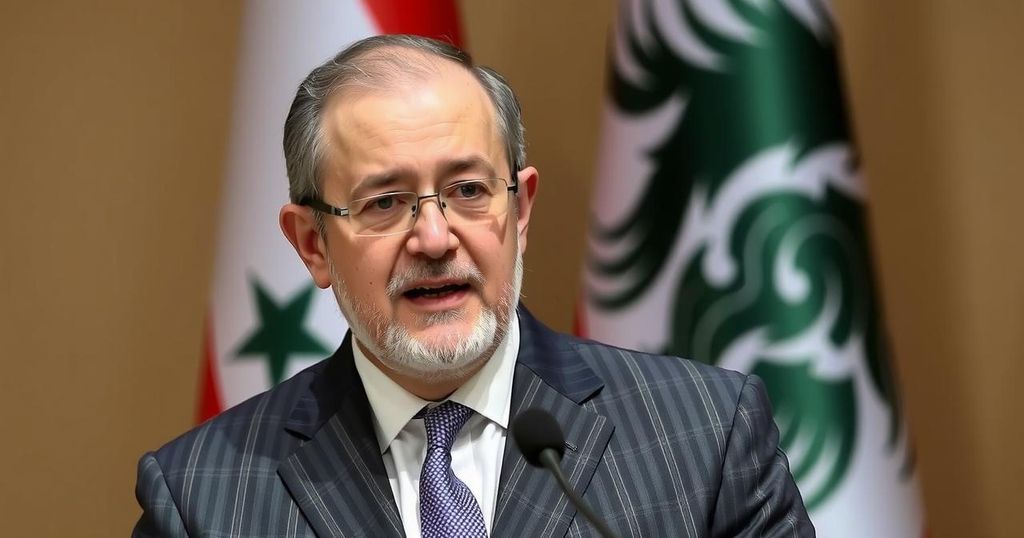Syria’s New Leadership Commits to Non-Interference in Lebanon

Ahmed al-Sharaa, Syria’s new leader, has pledged not to interfere negatively in Lebanon, promising to respect its sovereignty as he engages with regional powers, including Turkey and Saudi Arabia, amidst significant political changes following the ousting of Bashar al-Assad.
In a notable statement following his recent rise to power, Syria’s new leader Ahmed al-Sharaa pledged a shift in his country’s approach towards Lebanon, promising to refrain from any negative interference. Meeting with Lebanese Druze leaders Walid and Taymur Jumblatt in Damascus, Sharaa emphasized his respect for Lebanon’s sovereignty and security stability. This meeting comes as Turkey, after backing Sharaa’s Islamist faction, Hayat Tahrir al-Sham, engages diplomatically with Syria, highlighting the new regime’s effort to stabilize relations in the region. Saudi Arabia is also set to establish contacts with the new Syrian authorities, reflecting a significant shift in regional dynamics following the ousting of Bashar al-Assad. The backdrop of these developments is marked by Syria’s long history of involvement in Lebanon, characterized by military presence and political influence, which Sharaa aims to change by maintaining an equal distance from all political factions in Lebanon.
The recent political turbulence in Syria has led to the ascendance of Ahmed al-Sharaa as the new leader, following a critical takeover of Damascus and the removal of Bashar al-Assad. This transition not only impacts Syria’s internal dynamics but also its relations with neighboring Lebanon, where Syria has historically been accused of meddling in domestic affairs. The commitment to respect Lebanon’s sovereignty signifies a potential new era of relations and aims to ease longstanding tensions. The involvement of Turkey and Saudi Arabia indicates broader regional implications, as both countries seek to influence the direction of Syria’s governance and stability, particularly concerning the balance of power in Lebanon where multiple ethnic and religious groups exist.
In summary, the assurances made by Syria’s new leader, Ahmed al-Sharaa, regarding his country’s non-interference in Lebanon signal a noteworthy departure from past policies that fostered anxiety among Lebanese factions. As Syria navigates its new leadership under international scrutiny and regional alliances, the commitment to uphold Lebanon’s sovereignty could pave the way for more stable relations, although challenges remain regarding the influence of extremist groups within Syria.
Original Source: www.hindustantimes.com








